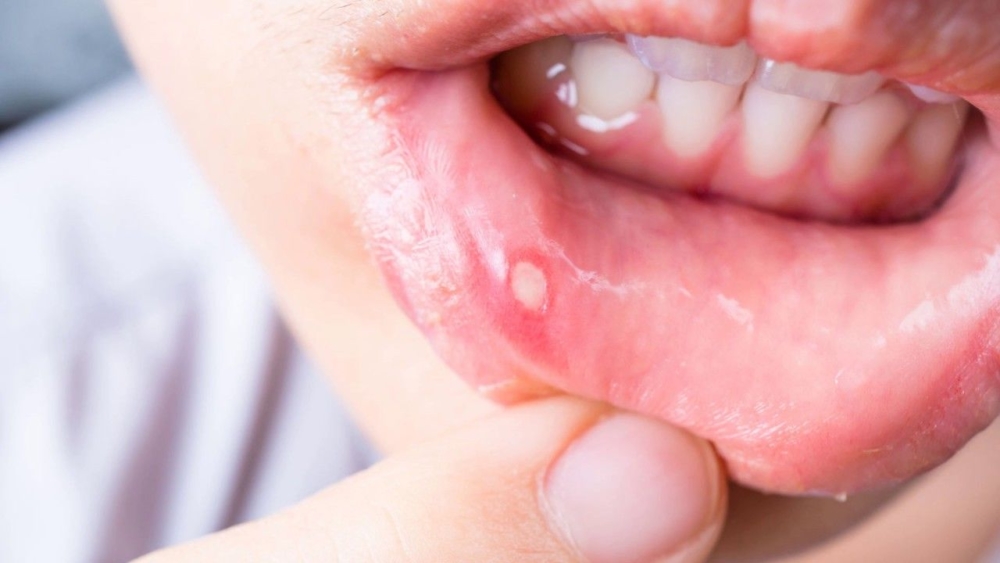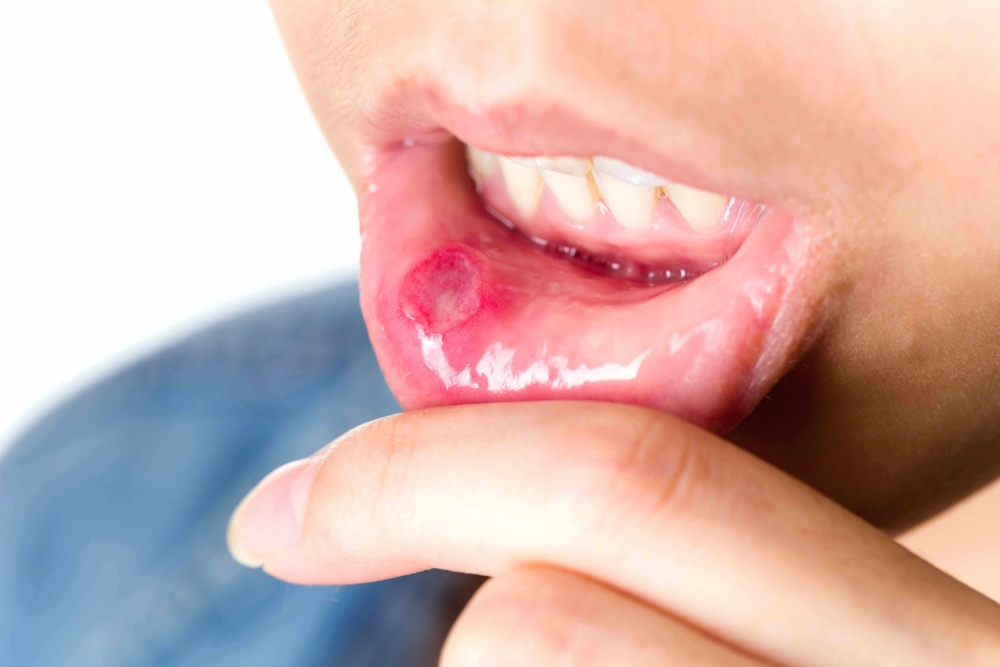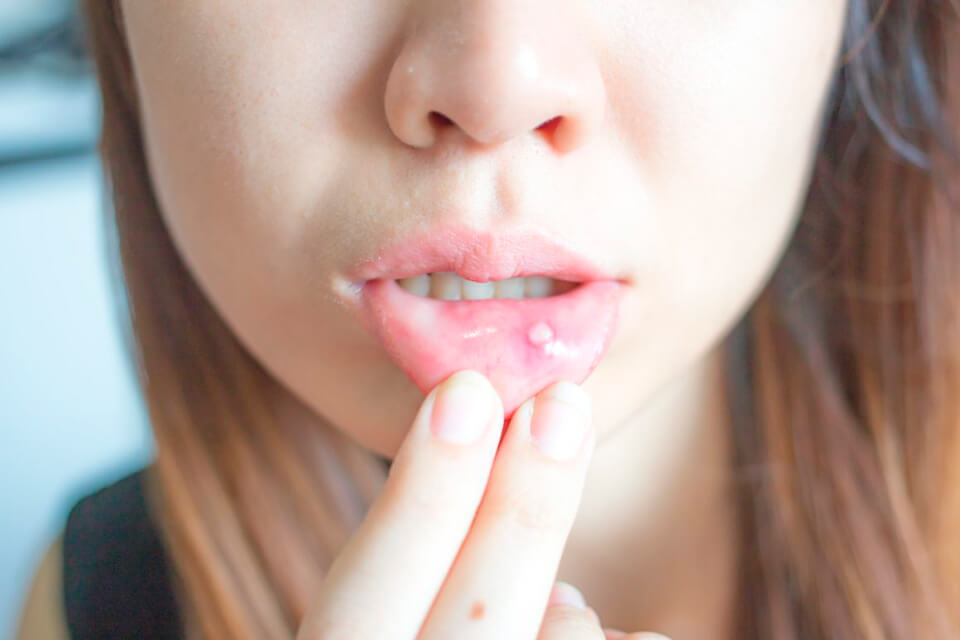It is impossible to prevent infection with herpetic stomatitis, but often it only depends on us whether we face this disease or not.
Material Content:
General characteristic of herpetic stomatitis
Herpetic stomatitis is a viral disease characterized by damage to the oral mucosa, the causes of which are very diverse. But basically, it is considered a decrease in the immunity of the human body.
The first sign of infection is the appearance of vesicles filled with a cloudy liquid, which subsequently burst, turning into ulcers. The severity of the disease is determined by the speed of wound healing and the number of affected areas. Infection is accompanied by itching and burning in the mouth and general weakness. With a mild degree of the disease, a slight increase in temperature is possible up to 37.5 degrees, with an acute one - up to 40. Children under 3 years old who are diagnosed with this infection must be hospitalized.
If you find symptoms of viral stomatitis, you should immediately consult a doctor. The diagnosis can be made by the dentist and therapist. To study the infection and prescribe the right therapy, it is necessary to take tests (a blood sample, urine and scrapings). Self-treatment and refusal of the help of qualified specialists can lead to a severe, advanced stage of the disease, as well as relapse.
Prevention of infection is the maintenance of a healthy lifestyle: playing sports, eating right, giving up bad habits, taking vitamin complexes, hardening and observing basic hygiene standards.
Causes of adults and children
Herpetic stomatitis is a viral disease transmitted by airborne droplets. You can pick it up in any public place. Unfortunately, once in the body, this infection remains in it forever.
But do not give up. When maintaining a healthy lifestyle and maintaining immunity at the proper level, the virus can be in a sleeping state, without creating any inconvenience to its carrier.
Causes of exacerbation of the disease:
- hypothermia;
- overheating;
- stress, mental and nervous disorders;
- avitaminosis;
- bacterial infection;
- taking antibiotics;
- decreased immunity;
- trauma to the lips and oral cavity;
- non-compliance with basic hygiene rules;
- tonsillitis;
- sinusitis, tonsillitis;
- periodontitis or gingivitis;
- untreated caries, plaque;
- poor-quality prosthetics;
- allergy;
- hormonal disorders in the body;
- dehydration;
- chemotherapy;
- malnutrition.
Symptoms and signs of the disease
Herpetic stomatitis is an inflammation of the oral cavity caused by herpes.
The main signs of herpetic stomatitis:
- Bubbles and then mouth ulcers, causing pain, discomfort, burning and itching.
- Gum disease, swelling.
- Unpleasant and unhealthy manifestations during meals.
- Enlarged cervical and mandibular lymph nodes.
- Fever, chills, weakness, and malaise.
- In severe cases, rashes can go to the nose, lips, and chin.
- Vomiting, diarrhea.
- Joint and muscle pain.
- Loss of appetite and irritability.
Diagnosis of herpetic stomatitis
The lack of treatment for the virus can adversely affect the work of the cardiovascular and nervous systems, so it is very important to diagnose the disease on time and start the course of therapy.
A qualified specialist first of all assesses the severity of the disease. In some cases, virological diagnostic methods are used. To date, the most commonly used method of immunofluorescence, which allows to detect acute herpetic stomatitis.
Diagnosis is possible with the clinical manifestations of the disease, and laboratory tests are required to identify the herpes simplex virus. When reappeared, it is recommended that the endocrinologist consult, as it becomes necessary to evaluate the functioning of the entire immune system.
The mild form of the disease is characterized by two or three vesicles in the oral cavity and their rapid healing. If the accumulation of ulcers is much larger, this condition can be called moderate. With exacerbation, rashes can spread throughout the face.
In case of manifestation of the symptoms of the disease in children, it is doubly important to consult a therapist, since in children the virus can cause fever, convulsions and vomiting.
Treatment methods
Treatment of herpetic stomatitis in both adults and children should be comprehensive.
In addition to the use of drug methods, the following rules must be observed:
- Do not eat solid food, which can injure the throat and oral cavity. For example, it is recommended to eat an apple only in the form of mashed potatoes.
- Dishes should be warm, not hot.
- Avoid finding food residues in the mouth after eating.
- Do not eat too salty or peppered food, as it can provoke an exacerbation of pathology.
It is important to remember that the disease cannot be started. In the absence of timely treatment, it can go into acute herpetic stomatitis. Children deserve special attention. It is recommended to immediately seek help from a specialist.
Given that herpetic stomatitis is a viral disease, its treatment begins with a general strengthening of the body. An important component in this case is the inclusion in your diet of components rich in trace elements useful for enhancing immunity.
List of required products:
- propolis;
- sea fish;
- dairy products;
- garlic, parsley, carrots, onions and beets;
- decoctions of oak bark and other medicinal herbs.
A qualified specialist, the therapist can even prescribe a course of immunostimulating agents. For healing of ulcers, Proposol, Ingalipt, Zovirax, Acyclovir are used. The latter can also be used orally in the form of tablets, as prescribed by a doctor. Furacilin is used to rinse the mouth.
Features of the course of the disease in children
It is worth noting that herpetic stomatitis in children most often occurs before the age of three years. This is due to the fact that at this time of life in a child, immunity is weakened or not yet fully formed.
Signs and characteristics of the disease in young patients:
- the baby is naughty, becomes lethargic and weak;
- eating poorly;
- drowsiness and an increase in the duration of the rest period appear;
- detection in the mouth, on the lips or cheeks of accumulations of small vesicles and redness, as well as inflammation of the gums;
- temperature increase, including slight;
- swollen lymph nodes;
- possible nausea, headache, chills, and itching;
- with a severe form of the disease - vomiting, lowering blood pressure, severe muscle and headache, intoxication, palpitations, rashes on the wings of the nose and eyelids.
It is important to understand that at the initial stage herpetic vesicles appear, which later burst. And if they did not turn into an ulcer, then the disease has no complications.
Treatment of herpetic stomatitis in a child can last from seven days to several weeks. At this time, you need to provide the baby with plenty of drink and healthy nutrition.
Unfortunately, once it gets into the body of a child, the virus will remain in it forever. Pathology will manifest itself at the time of weakening of immunity throughout a person’s life.
Disease prevention
The main prevention of herpetic stomatitis is to maintain the necessary level of immunity.
To do this, perform a series of actions:
- Do not supercool.
- Do not overheat, including when spending many hours on the beach.
- Observe hygiene standards: clean hands and teeth. Do not use other people's personal things: towels, cosmetics.
- Use vitamins and biologically active additives (dietary supplements).
- Avoid stress, anxiety, do not worry.
- Engage in the treatment of immune diseases.
- Provide proper (balanced) nutrition, get rid of bad habits (alcoholism and smoking).
- Maintain a healthy microflora of the gastrointestinal tract.
- Timely treat tooth decay.
Given that sometimes regular chewing gum or candy can cause stomatitis, you should especially carefully choose food. It is important to listen to your body. - Temper, thereby strengthening the immune system. This can be dousing, and the alternation of a contrast shower or even diving into an ice hole.
Important: hardening should occur gradually, as this is a kind of stress for the body.
You need to understand that if the body's immunity is strengthened, the virus has no chance. Otherwise, the disease can occur again and again, developing into chronic herpetic stomatitis.
How to distinguish herpes from stomatitis
At first glance, it seems difficult to distinguish herpes from stomatitis, since these diseases have similar symptoms. But with a thorough examination, specific signs of the disease can be identified.
Stomatitis is characterized by the following:
- At the very initial stage, ulcers appear, causing discomfort to the patient, especially during eating.
- The defeat of the mucous membranes and mainly soft tissues, most often it is the tongue and the area above or below it.
- Affected areas may be different.
Herpes is characterized by the following symptoms:
- At the initial stage, bubbles appear, which subsequently burst.
- The tissues that adhere to the bones, mainly the skin, are affected.
- The virus is able to appear in the same place.
Since there are sometimes a lot of vesicles, and subsequently they all turn into one big ulcer, herpes can be the cause of stomatitis.
It is very important to make a diagnosis correctly, since the method of treatment depends on the type of disease.


















